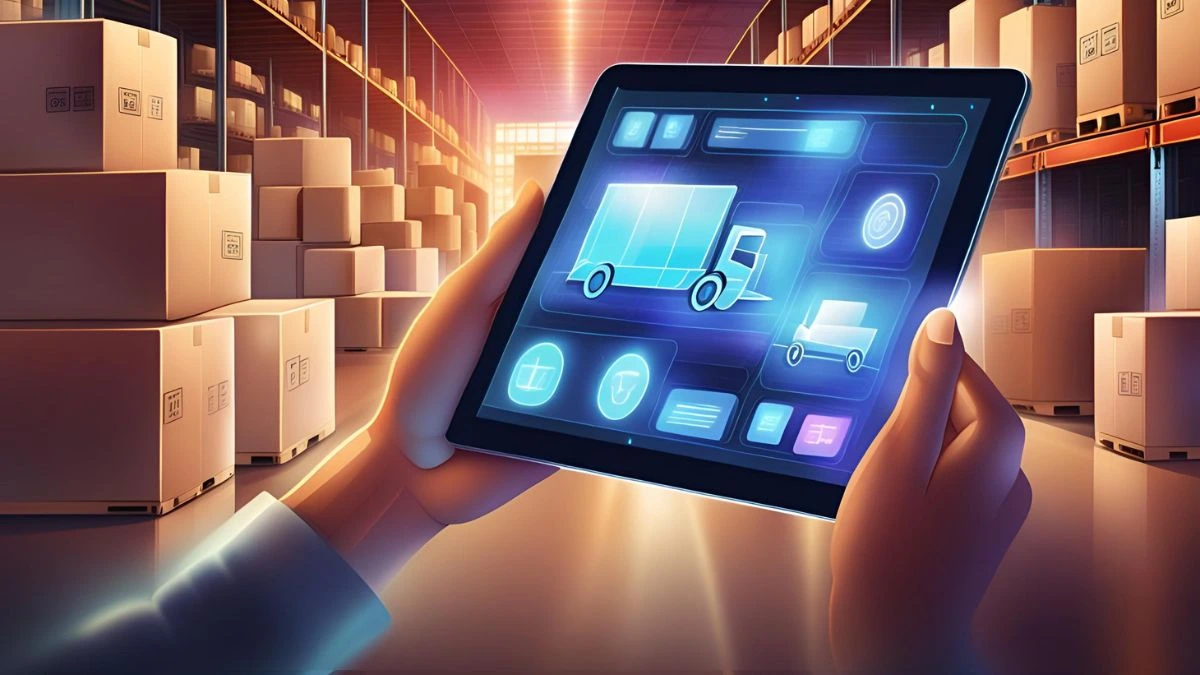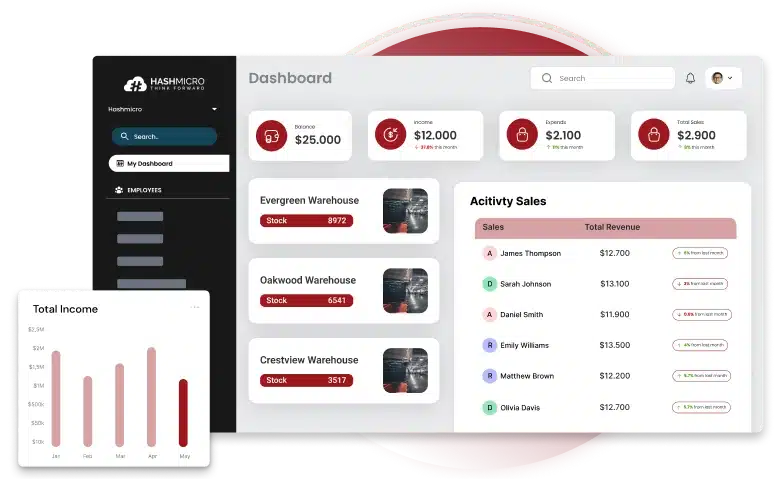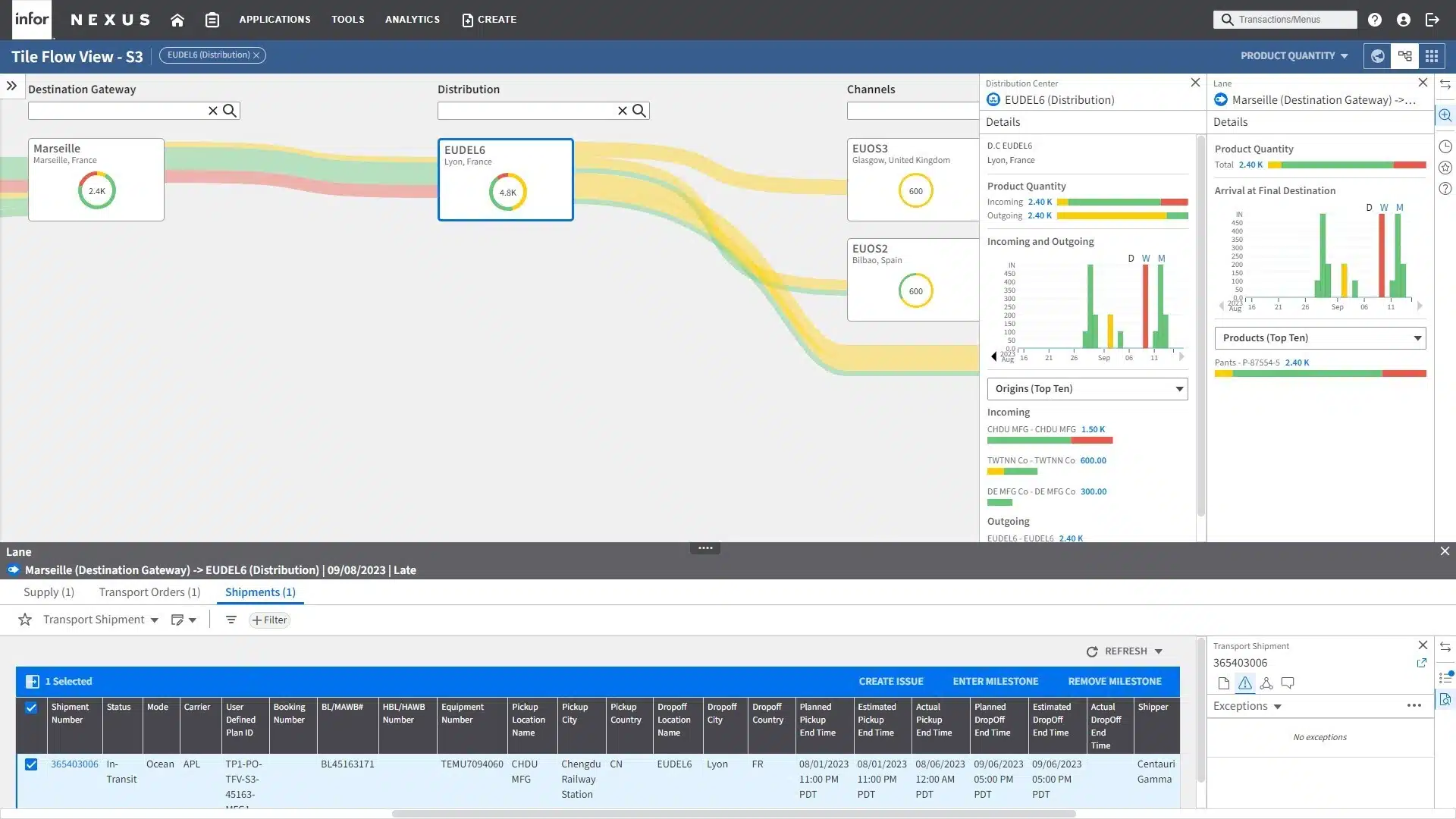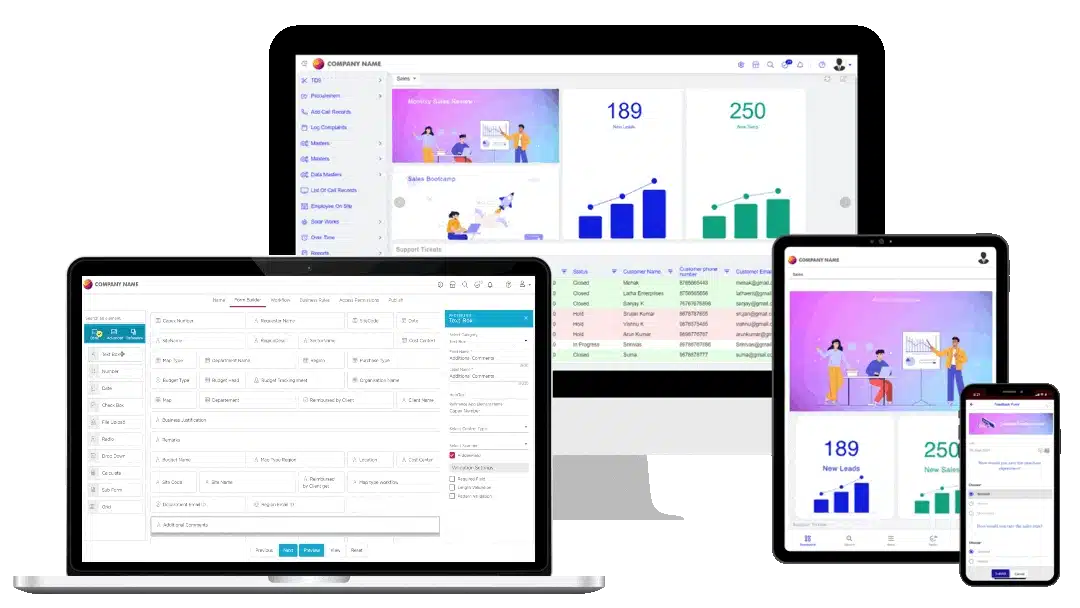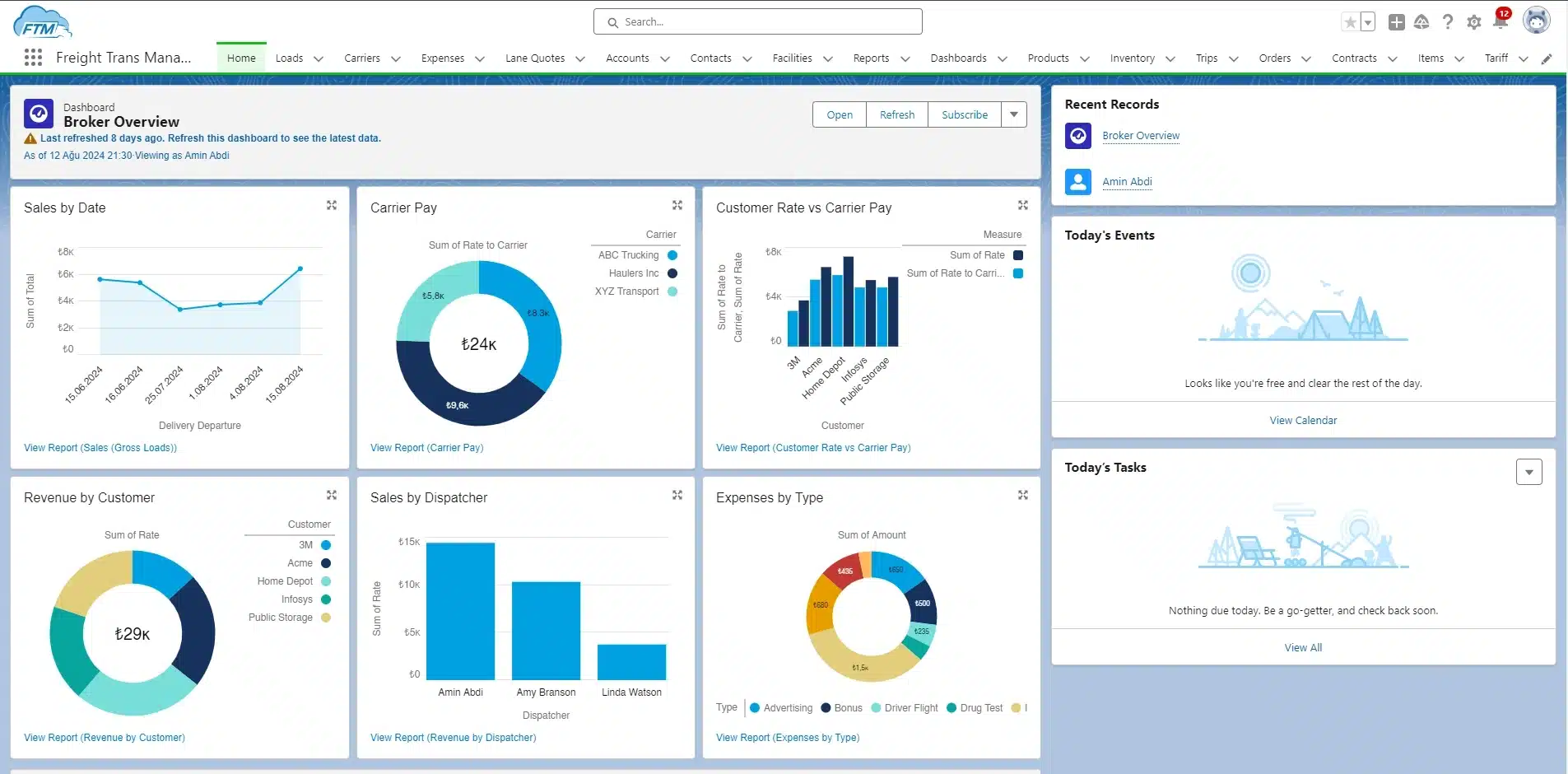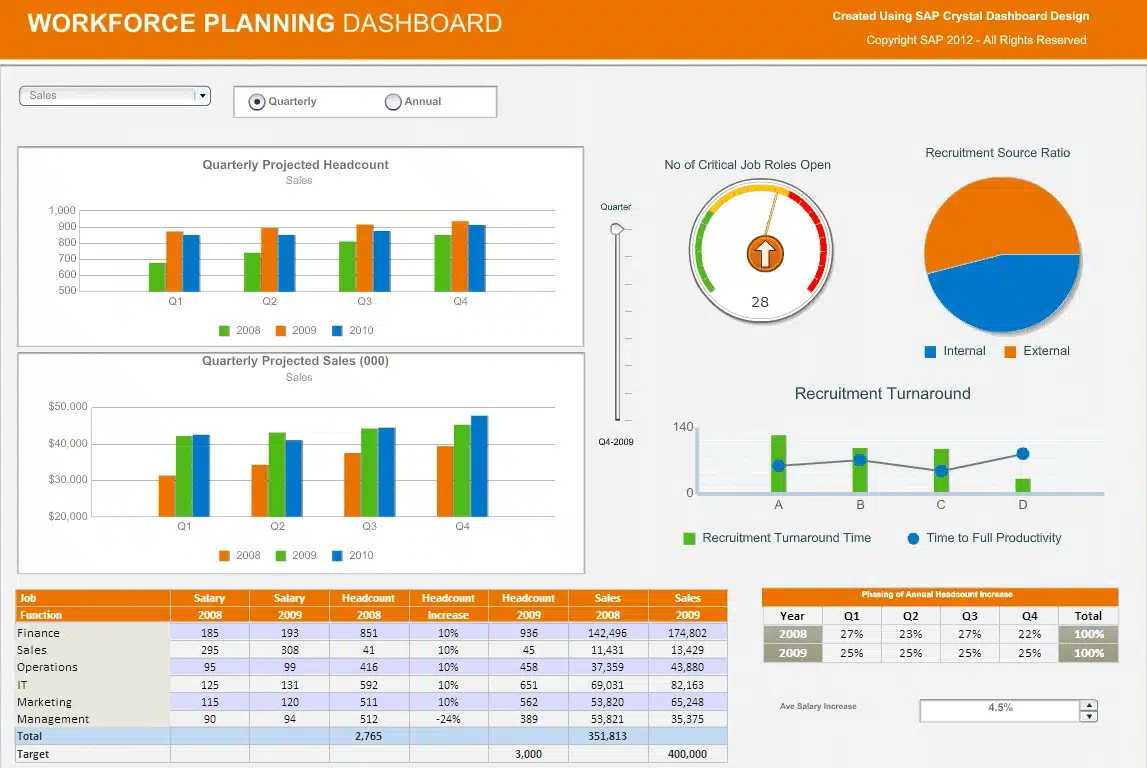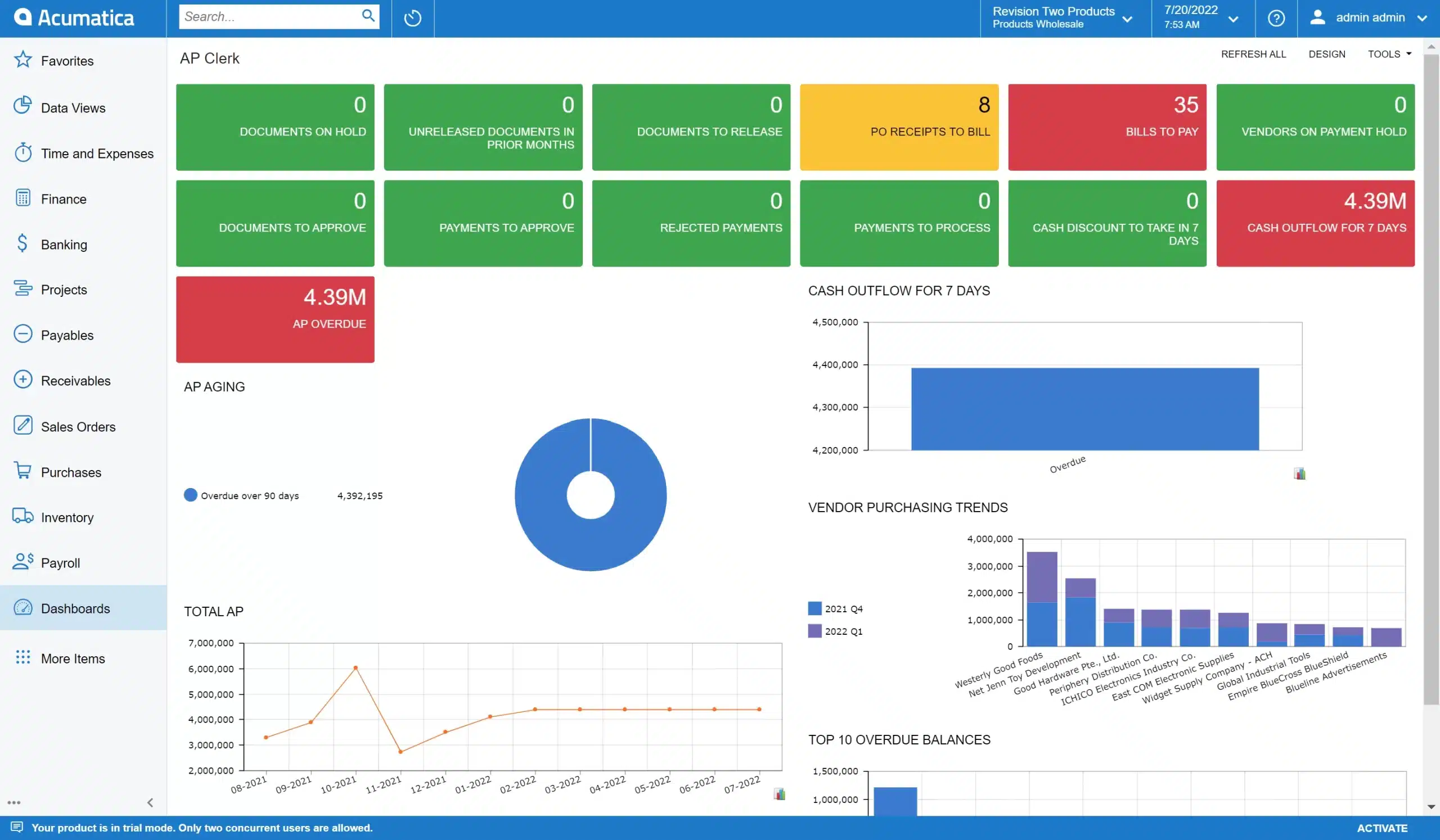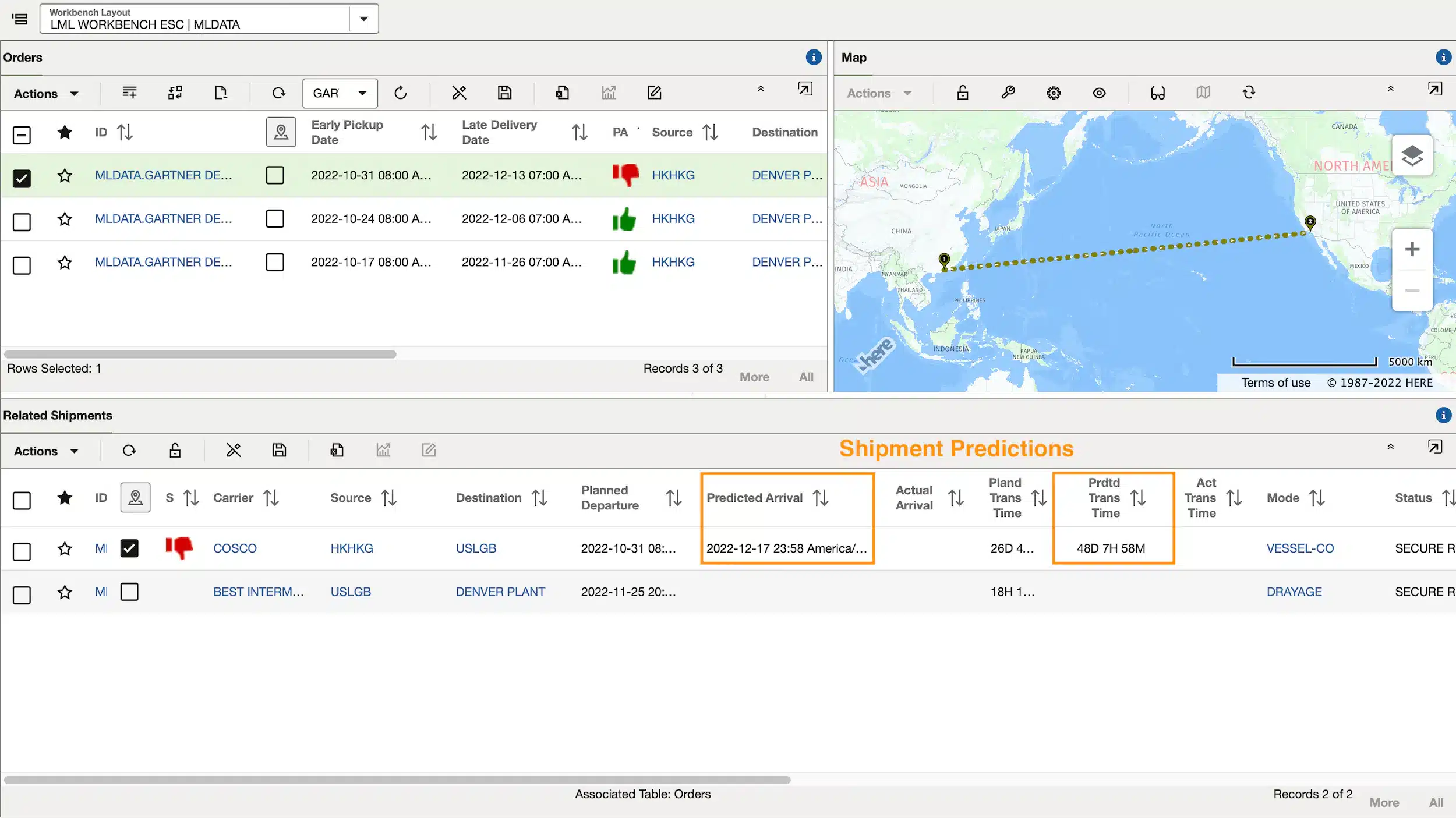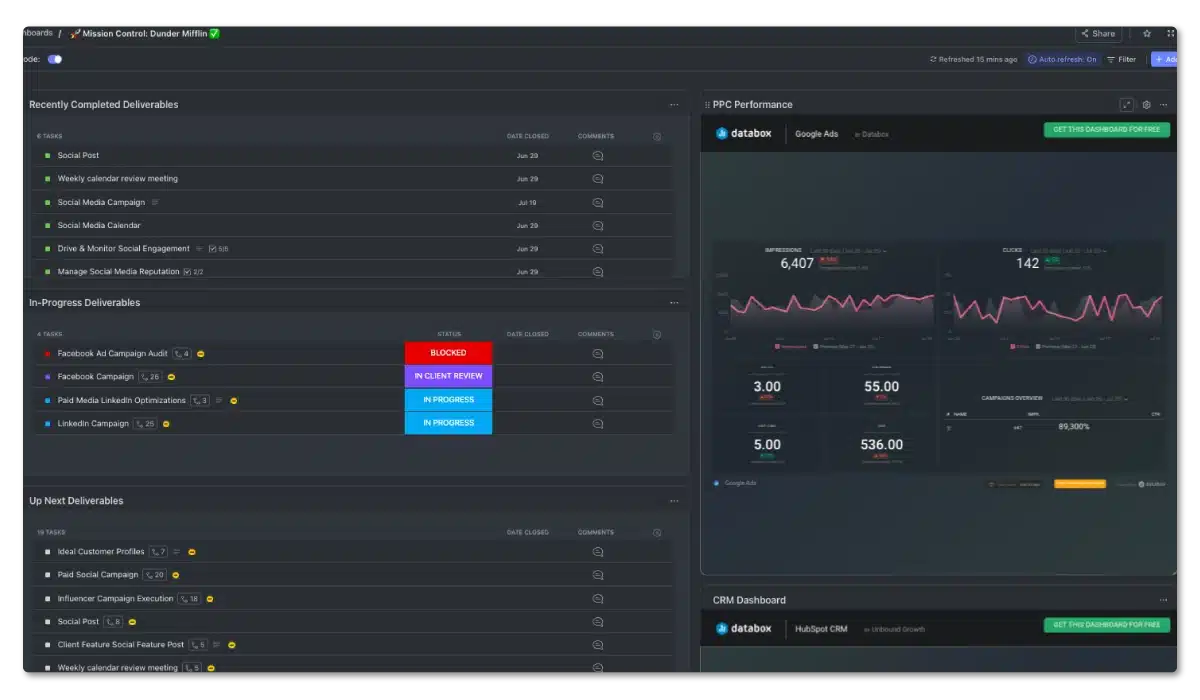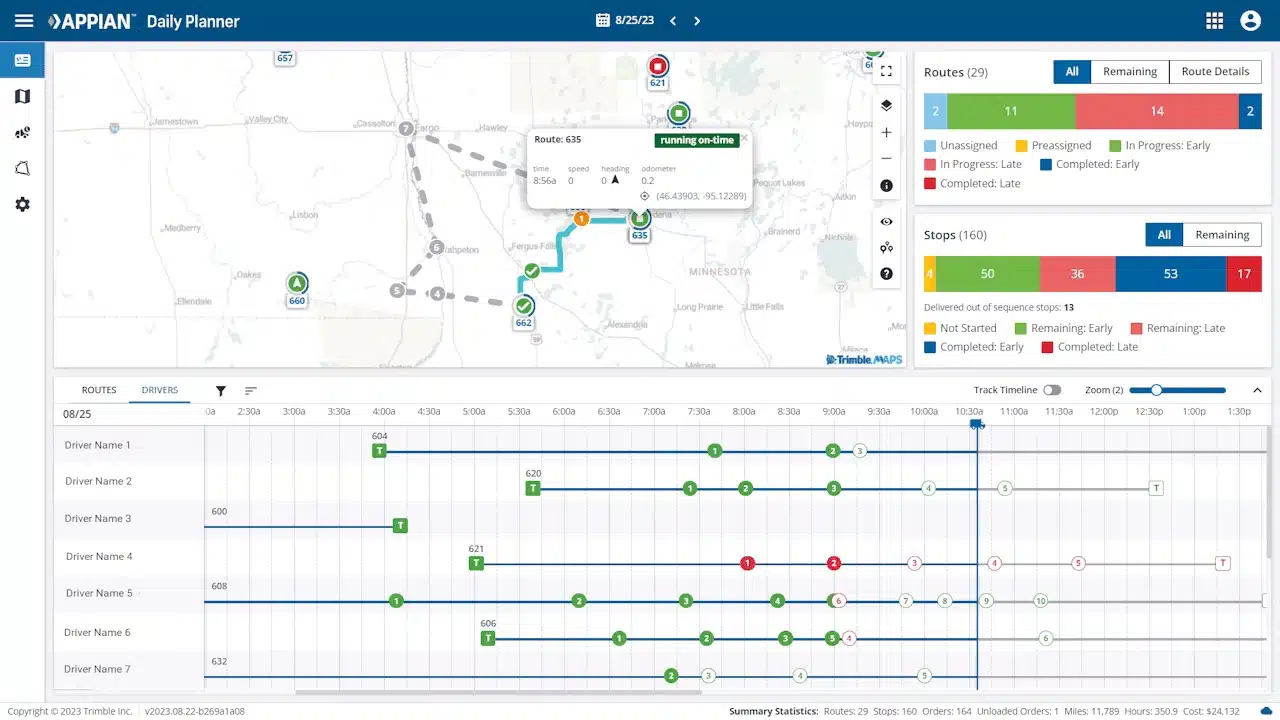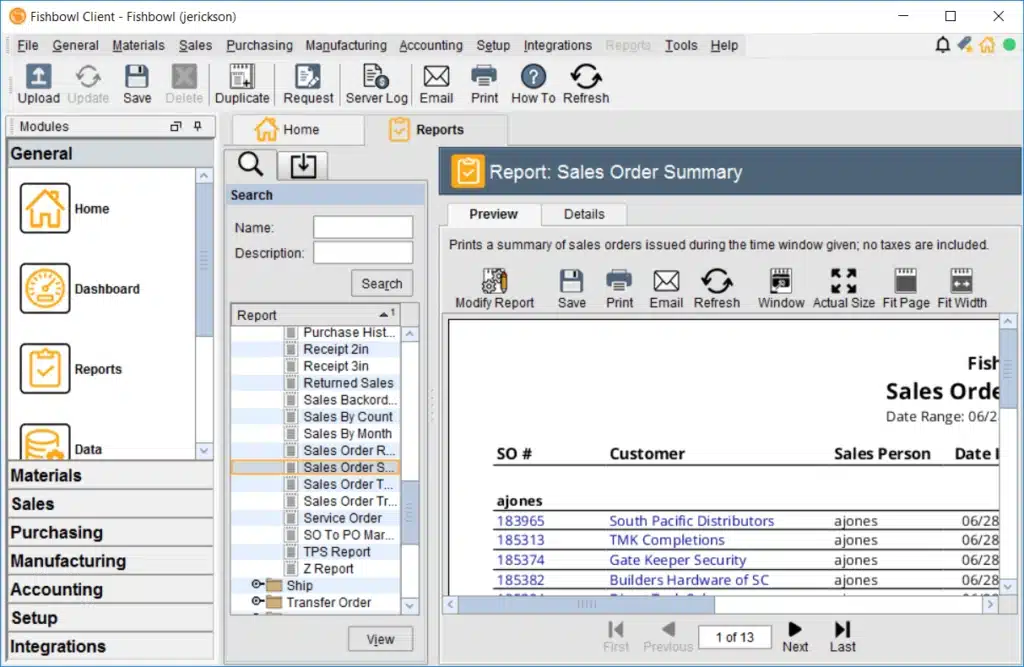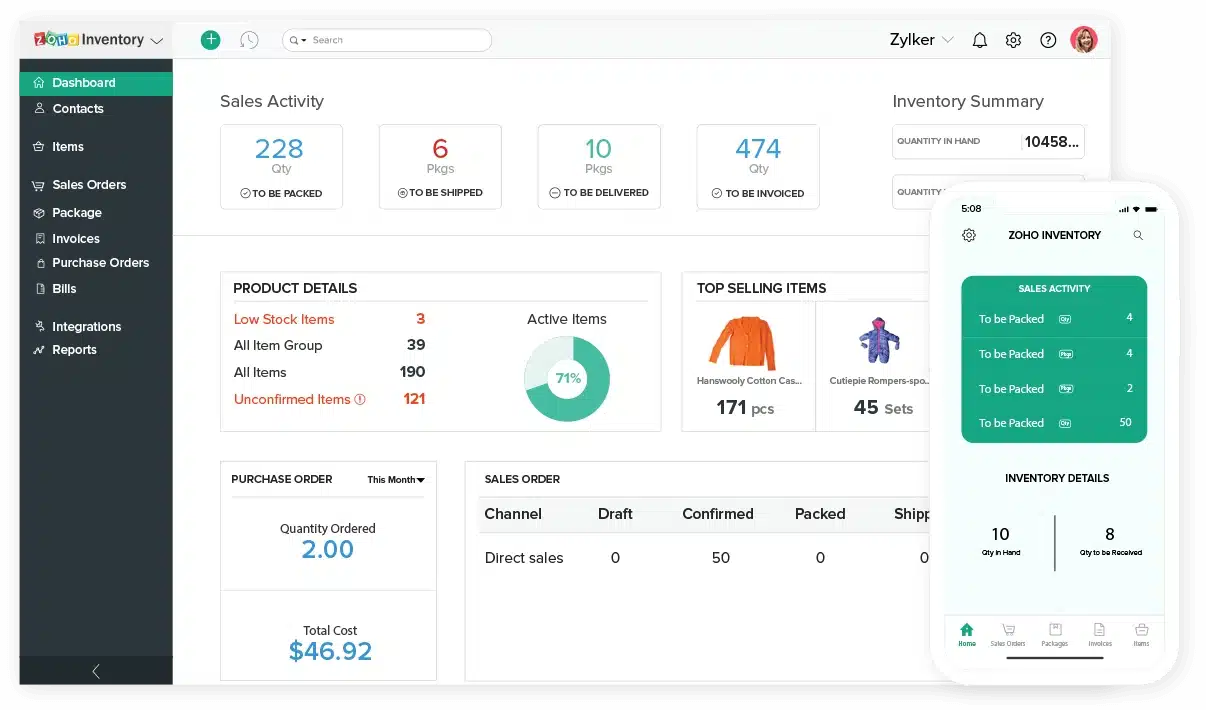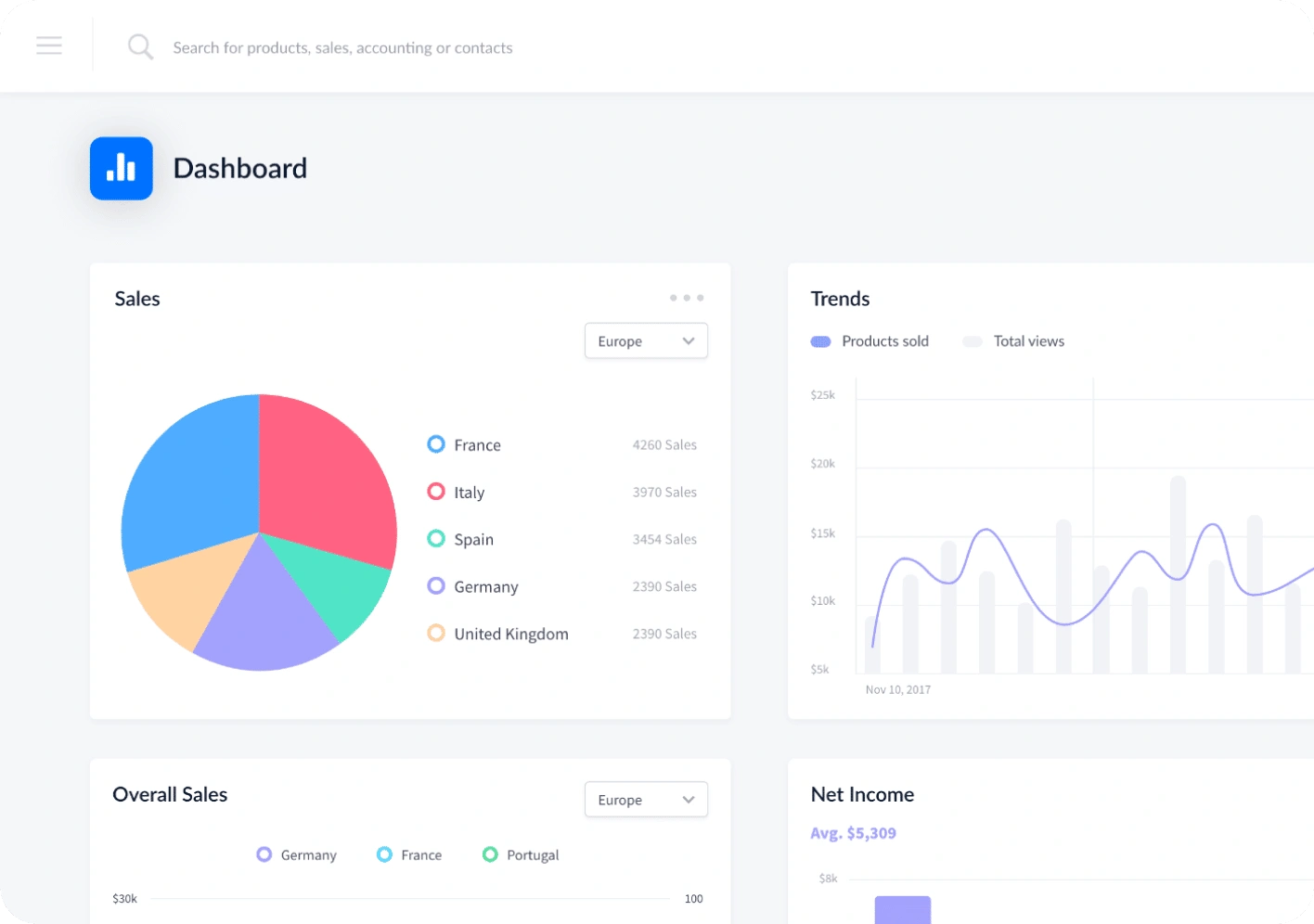Struggling to find the right logistics software for your business? Choosing the best logistics management software can be overwhelming, especially with so many options claiming to boost efficiency and visibility. Malaysian businesses need solutions that truly fit their unique needs and growth plans.
The logistics market in Malaysia is projected to reach US$62.63 billion by 2029, showing massive potential but also increased pressure to optimize operations. Effective logistics software is crucial to managing fleets, warehouses, and supply chains more smoothly, cutting costs while improving service quality.
Modern logistics platforms provide real-time tracking and strong analytical functions to allow companies to monitor shipments, forecast demand, and keep inventory accurately. Companies need these technologies to remain competitive, reduce mistakes, and increase transparency.
In this article, discover top logistics management platforms tailored for Malaysian businesses. Learn how to choose the right software to streamline operations, improve visibility, and support sustainable growth.
Key Takeaways
|
What is Logistics Management Software?
Logistic software is the main software program that oversees your whole supply chain process. With it, you have access to tracking shipments, fleet vehicle routing, and warehouse management optimization, all designed to increase efficiency and keep costs intact.
In the warehouse, product locations are mapped through software so that workers can easily find and pick inventory without losing time. The system automatically processes incoming orders as they come in, assigns the best carriers to each one, and tracks them until they reach their customer.
Businesses gain real-time visibility of inventory, shipment status, and potential disruptions. Accuracy by integrating with a warehouse management system is achieved through granular reporting to identify bottlenecks, measure supplier performance, and simplify logistics planning.
Essential Features of Logistics Management Software
Effective logistics software is crucial for businesses aiming to meet their delivery goals while maximizing efficiency. To help you choose the best solution, here are ten must-have features that every robust logistics management platform should include:
- Cargo transport coordination: Plans freight movement to ensure seamless deliveries from loading to destination.
- Shipment transparency: Uses accurate data for better route mapping, reducing costs and transit time.
- Live monitoring: Provides live shipment updates via GPS, helping manage delays and disruptions.
- Fuel efficiency control: Tracks fuel usage, secure transactions, and optimizes refueling for cost efficiency.
- Vehicle performance enhancement: Identifies optimal routes, manages vehicle loads, and adapts plans dynamically.
- Hauler contract management: Centralizes contracts for better negotiation and integration with TMS tools.
- Storage system synchronization: Syncs with WMS for real-time inventory updates and efficient order fulfillment.
- Automated invoicing & transactions: Automates invoicing, tracks payments, and enhances financial accuracy.
- Analytics & information handling: Provides dashboards and analytics for strategic decision-making.
- Data protection: Protects data with access controls, backups, and fraud prevention measures.
Benefits of Logistics Management Software
1. Enhanced operational efficiency through automation
A key benefit of logistics software is its ability to optimize operations by automating tasks. This reduces the need for manual work and minimizes human error, leading to faster and more precise workflows.
2. Reduced operational costs through resource optimization
Digital transformation in the supply chain has the potential to significantly cut costs by optimizing the utilization of resources. Automation helps maintain inventory levels and balance supply and demand, avoiding overbuying and minimizing costs even during uncertain conditions.
3. Improved customer satisfaction with faster, more reliable service
Logistics management software enables quicker, more dependable services, decreasing the likelihood of delays or mishandling. This improves customer satisfaction and builds loyalty, enhancing your competitive edge.
Industry reports consistently highlight that a majority of logistics leaders prioritize system improvements and customer experience as key drivers for growth.
4. Greater visibility and control across the logistics process
Centralized platforms, often part of comprehensive supply chain management software suites, provide real-time visibility and data analytics. This transparency helps managers detect bottlenecks early and make informed decisions, improving overall performance.
12 Best Logistics Management Software in 2026
For businesses in Malaysia, selecting the right logistics software is crucial to staying competitive in the growing market. Each of these solutions offers features designed to improve efficiency and optimize operations. Let’s explore the 12 best logistics management software available in Malaysia for 2026.
1. HashMicro
Why choose HashMicro? HashMicro provides industry-specific logistics solutions combining essential logistics functions with smart automation tailored to meet the unique needs of Malaysian businesses.
With over 2,000 satisfied clients, HashMicro is a leading provider of Logistics Management Software (LMS) in Malaysia, trusted by businesses of all sizes. HashMicro is dedicated to delivering top-notch solutions that help you optimize your logistics.
Moreover, it does not require a credit card to get started, a zero-cost demo for the software, which is an opportunity for companies wanting to see what it’s capable of.
HashMicro Logistics Software integrates seamlessly with other critical systems, including inventory systems, warehouse management system, and sales platforms. Whether you need to handle inventory, track shipments, or optimize delivery routes, HashMicro equips you with the tools to streamline your logistics operations.
Some of the key features that help eliminate logistics hurdles include:
- Real-Time Updates: HashMicro keeps customers informed on delivery status the moment it changes, offering full transparency every step of the way.
- Vehicle Scheduling: With automated vehicle assignment, the software selects the best option for each delivery to cut down on time and costs.
- Fuel Management: Real-time odometer tracking provides precise insights into fuel use, helping you manage expenses effectively.
- Delivery Tracking: Delivery details, including vehicle type and transporter, are accessible anytime, anywhere.
- Fleet Management: Track vehicle locations and mileage with GPS and odometer data, making it easier to analyze trip times and improve fleet use.
- Report Generation: Generate custom, detailed reports with diagrams for insights into operations and better decision-making.
- Travel Management: All travel records are centralized, allowing for easy route planning and efficient transport.
| Pros | Cons |
|
|
HashMicro offers transparent pricing with no hidden charges and competitive rates for its comprehensive services. If you want a personalized quote tailored to your business, click the banner below!
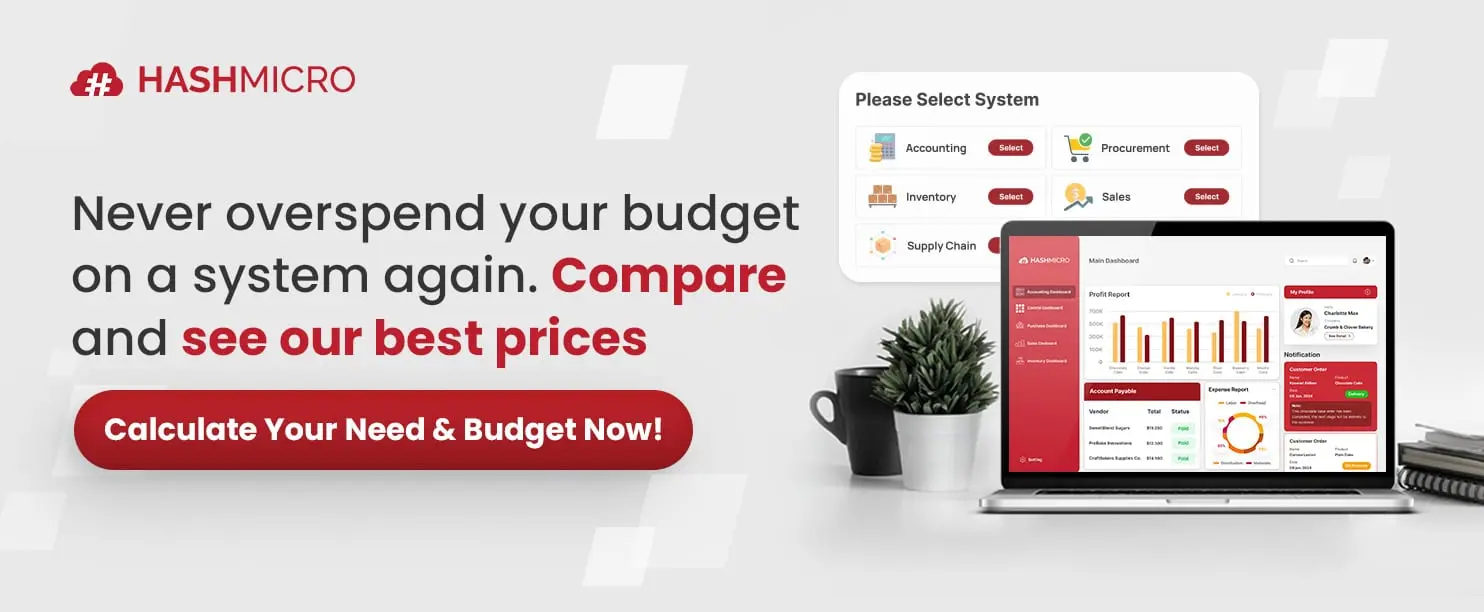
2. Infor
Infor Nexus is a global logistics management platform designed to boost inventory systems, custom delivery, order fulfillment, and trucking logistics. It supports diverse transportation modes including air, ocean, truck, and parcel, making it versatile for various supply chain needs.
Why choose Infor? This solution offers a comprehensive suite of logistics and supply chain tools with industry-specific features. It is especially suited for larger enterprises in Malaysia looking for advanced analytics and detailed reporting capabilities.
Features:
- Efficient Route Planning
- Adaptable Tendering Process
- Customizable Scalability b
- Improved Load Optimization
| Pros | Cons |
|
|
3. Quixy
Quixy is a logistics app development provider offering a no-code/low-code platform for building and managing custom applications with ease. Its no-code logistics software lets users create tailored apps for operations like inventory management, order tracking, supply chain management, and freight management.
Why choose Quixy? It’s perfect for companies that need customizable solutions without the complexity of traditional software development, allowing them to adapt logistics processes precisely to their needs.
Features:
- Workflow Automation
- Real-Time Analytics
- Integration Capabilities
- Automated Notification and Alerts
| Pros | Cons |
|
|
4. Salesforce
Salesforce for Transportation and Logistics Service Providers integrates smoothly with a CRM system, offering features like contact management, process automation, and shipment tracking. This helps businesses streamline logistics into a customer-focused operation with connected supply chains.
The platform enables you to transform logistics into a smooth, customer-focused operation with integrated supply chains and a comprehensive view of the shipping process.
Why choose Salesforce? Salesforce is ideal for businesses that prioritize customer relationship management alongside logistics. Its robust CRM capabilities, combined with logistics modules, support operational efficiency.
Features:
- Unified Customer View
- Real-Time Shipment Tracking
- Automation and Process Optimization
- Advanced Analytics and Reporting
| Pros | Cons |
|
|
5. SAP Transportation Management
SAP Transportation Management (TM) plays a vital role in SAP’s design-to-operate strategy, focusing on optimizing digital supply chains. It supports both cloud and on-premises deployments, offering flexibility to manage freight planning, execution, and settlement for global and local supply chains.
Why choose SAP? SAP TM is well-suited for businesses that require seamless integration with existing SAP ERP systems. This integration facilitates efficient logistics and supply chain management
Features:
- Efficient Route Planning
- Automation Powered by AI
- Adaptable Tendering Process
- Customizable Scalability
- Improved Load Optimization
- Logistics Execution
| Pros | Cons |
|
|
6. Acumatica
Acumatica is a cloud-based ERP platform that offers end-to-end logistics solutions, including inventory tracking, warehouse control, and order processing. It supports omnichannel sales and adjusts stock levels in real time.
It also integrates a built-in warehouse management system that helps optimize inventory movement and warehouse operations. Teams gain full visibility over stock, order statuses, and warehouse performance metrics.
With added CRM, advanced reporting, and a full accounting suite, Acumatica is ideal for Malaysian businesses looking for flexible and scalable logistics software that grows with their needs.
Features:
- Efficient Route Planning
- Adaptable Tendering Process
- Customizable Scalability
- Improved Load Optimization
| Pros | Cons |
|
|
7. Oracle Transportation Management
Oracle Transportation Management (OTM) is a cloud-based solution designed to streamline freight and delivery across complex supply chains. It handles order management, shipment planning, and freight auditing on a unified platform.
The system enables real-time tracking, helping businesses monitor delivery progress and act on delays quickly. It also uses advanced optimization to match shipments with the most efficient and cost-effective carriers and routes.
OTM is a strong fit for logistics-heavy sectors such as manufacturing and distribution in Malaysia. With support for multi-modal transport and ERP integration, it brings efficiency and visibility to your transportation operations.
Features:
- Pricing Management System
- Route Optimization
- Automated Task Management System
- Real-Time Network Modeling
- Forecasting Analysis
| Pros | Cons |
|
|
8. ClickUp
ClickUp is a cloud-based platform initially designed for project management but can also support logistics operations. It offers tools to track shipments, optimize delivery routes, and coordinate logistics teams in real time.
With its flexible interface, teams can manage order tracking, monitor inventory, and stay on top of shipping schedules, all within a single platform. It simplifies communication and keeps operations moving efficiently.
Why choose ClickUp? This user-friendly solution is ideal for Malaysian businesses that want a customizable tool for logistics coordination without the complexity of traditional logistics systems.
Features:
- Customizable Views for Task Management
- Real-Time Collaboration Tools
- Dashboard KPIs and Visual Widgets
- Document Syncing with Team Workflows
| Pros | Cons |
|
|
9. Trimble
Trimble Fleet Mobility is a transportation management system that enhances operational efficiency through real-time tracking and intelligent route planning. It streamlines logistics workflows and provides tools for better visibility and control.
Businesses can optimize deliveries, reduce fuel costs, and improve driver performance using Trimble’s advanced data analytics. Its GPS tracking ensures fleet operations are monitored with precision across Malaysia.
Why choose Trimble? It’s ideal for logistics and transportation firms in Malaysia that prioritize fleet efficiency and need robust tools for real-time tracking and route optimization.
Features:
- Optimized Asset Usage
- Seamless Integration Features
- Enhances Performance Management
- Data Analytics and Insights
| Pros | Cons |
|
|
10. Fishbowl
Fishbowl is a logistics management software designed to streamline inventory, warehouse, and production workflows. It offers two options: Fishbowl Drive for cloud-based access and Fishbowl Advanced for on-premise deployment, catering to different business setups.
Malaysian SMEs can manage daily logistics tasks efficiently without needing to overhaul their current systems. Fishbowl integrates seamlessly with accounting software like QuickBooks, helping businesses maintain smooth operations and accurate records
Why choose Fishbowl? It’s ideal for SMEs in Malaysia looking to upgrade inventory control while retaining their existing financial systems. Fishbowl supports growth without adding unnecessary complexity.
Features:
- Barcode-Enabled Inventory Management
- Automated Stock Counts
- Customizable Workflows for Manufacturing Automation
- Automated, Customizable Reporting
| Pros | Cons |
|
|
11. Zoho
Zoho Inventory is a customizable and easy-to-use logistics management software designed to streamline deliveries, vehicle management, and driver coordination. Automated notifications and full mobile support ensure your logistics run smoothly at all times.
The platform’s dashboard consolidates vital information like orders, pending shipments, and trip revenues, offering real-time insights to help your team stay informed and responsive.
Why choose Zoho? This software suits Malaysian SMEs managing multiple sales channels, including e-commerce, helping them unify logistics processes efficiently.
Features:
- Integration with Shipping Carriers
- Batch & Serial Number Tracking Across Channels
- Auto-reordering with Preferred Vendors
- Order & Trend Insights Reports
| Pros | Cons |
|
|
12. Brightpearl
Brightpearl is a leading logistics software designed for retail operations, managing inventory planning, shipping, fulfillment, and order procurement. It also includes a retail-focused CRM to strengthen customer relationships.
Why choose Brightpearl? This solution caters to retail and wholesale businesses, providing integrated inventory and order management. It is ideal for Malaysian retailers looking to seamlessly streamline their sales and logistics management platform.
Features:
- Inventory Buying Recommendations
- Multi-Channel Inventory & Order Management
- Intuitive Dashboard for Key Metrics
- Integrated Retail CRM
| Pros | Cons |
|
|
Comprehensive Comparison of Logistics Software
| Provider | Connection Quality | Bank Coverage | Ease of Integration | Data Enrichment |
|---|---|---|---|---|
| Hashmicro | ||||
| Infor | ||||
| Quixy | ||||
| Salesforce | ||||
| SAP TM | ||||
| Acumatica | ||||
| Oracle | ||||
| ClickUp |
What You Should Look For in Logistics Software
Choosing the right logistics software is crucial because no single solution fits every business. Prices can vary widely, from a few hundred ringgit to several thousand. Here’s what to consider when selecting the best logistics management software for your needs:
Key features: Ensure the software includes core functionalities essential for daily logistics operations, such as shipment tracking, fleet management, and inventory control. These are the tools you will use the most.
Full supply chain view: Opt for software that provides a comprehensive overview of your entire logistics process, from packaging to last-mile delivery, while seamlessly integrating with distribution planning software to enable better decision-making and improve operational efficiency.
Real-time tracking: The ideal system offers real-time updates and intuitive dashboards so you can monitor critical metrics anytime, anywhere.
Seamless integrations: It should integrate smoothly with your existing CRM and ERP software to avoid data duplication and streamline workflows.
Business fit: Look for a solution tailored to your company’s size, shipment volume, and product types, ensuring it addresses your unique challenges.
Scalability: Your chosen software must grow alongside your business without imposing high or hidden costs.
With these features, your logistics management platform will support your business efficiently and evolve as your operations expand.
Conclusion
Choosing the proper logistics software is essential for Malaysian businesses aiming to improve operational efficiency, cut costs, and gain real-time visibility throughout their supply chains. Features like fleet management, automated tracking, and smooth integration with other business systems play a key role in enhancing logistics performance.
HashMicro’s logistics management software provides these benefits and more. With tools for vehicle scheduling, fuel monitoring, and detailed reporting, it helps businesses streamline deliveries, minimize delays, and make smarter, data-driven decisions, all with customizable and scalable solutions.
Ready to elevate your logistics operations? Book a free demo today and see how HashMicro can empower your business to stay efficient and competitive in today’s fast-paced market.
FAQ About Logistics Software
-
What is CRM in logistics?
CRM in logistics refers to using customer relationship management systems to enhance communication, client relationships, and service quality in delivery. It enables logistics companies to strengthen customer relationships by tracking orders, feedback, and service history.
-
Can logistics software integrate with e-commerce platforms?
Logistics management solutions can integrate with e-commerce platforms for seamless order processing, auto-shipping notifications, and inventory synchronization, leading to faster fulfillment and improved customer experience.
-
What role does data analytics play in logistics software?
Data analysis of logistics software identifies trends and inefficiencies that exist in supply chain operations. It helps firms make informed choices by way of demand forecasting, inventory optimization, and delivery route optimization, reducing expenditure and increasing profitability.
-
Is cloud-based logistics software secure?
Modern cloud-based logistics software employs advanced security measures, such as encryption, multi-factor authentication, and regular security audits, to protect sensitive data. Providers often comply with international standards to ensure customer information remains safe and confidential.








